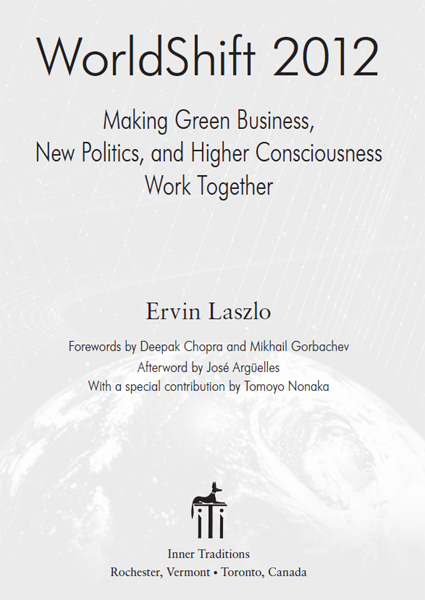
WORLDSHIFT 2012 IS THE
CLUB OF BUDAPESTS HANDBOOK
OF CONSCIOUS CHANGE
Founded by Ervin Laszlo in 1993, the Club of Budapest (www.clubofbudapest.org) is an informal international association of individuals of high ethical standard and moral integrity dedicated to developing new ways of thinking and acting to help resolve the social, political, economic, and ecological challenges of the twenty-first century. With its eminent members and dedicated national clubs active in many parts of the world, the club initiates and sustains a dialogue between different belief systems and worldviews in order to cocreate effective strategies for responsible action with a global focus (see www.worldshift2012.org).
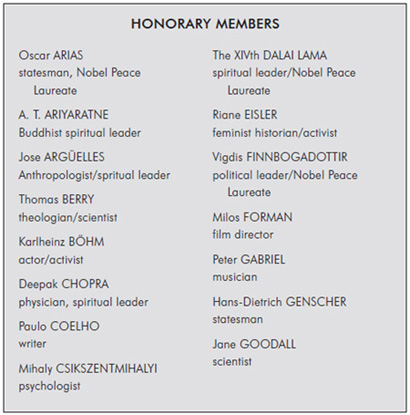
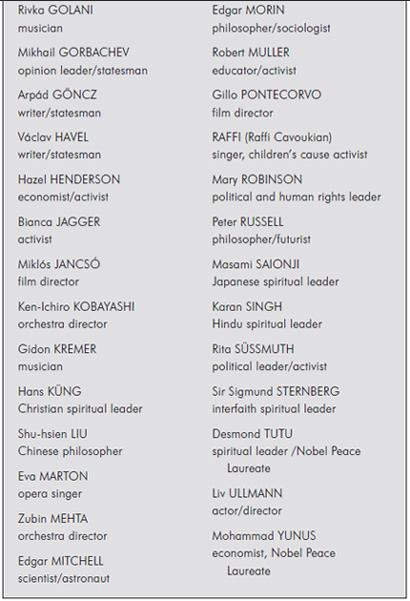
Contents
AFTERWORD BY JOS ARGELLES
Worldshift 2012A New Beginning
APPENDIX 1
WorldShift Recommended Reading
APPENDIX 2
The Club of Budapest Mission: The Manifesto on Planetary Consciousness
WorldShift:A worldwide shift from a path of unsustainability, conflict, and confrontation to a path toward sustainability, well-being, and peace.
Foreword

Deepak Chopra
We are already living in two worlds. One world moves ahead by inertia from the past, like a massive luxury liner drifting at sea, while the other steps into the unknown, like a child entering the woods for the first time. On the front pages of newspapers and on the evening news, the first world gains the lions share of attention. A new crisis deepens yesterdays crisis in Africa or the Middle East. A fresh humanitarian outrage taints a faraway society. One war replaces another. Despite the sameness of these events, they constitute the news of the world as far as the mass media shows it. Yet this world of inertia and non-change is deceptive. Beyond crisis-driven news, another world is rising. In this book Ervin Laszlo maps this new world and its promiseno one I know is more acutely attuned to it.
The first world is a solid wall that looks impregnable, yet behind it people no longer feel protected. They dream of a shift in consciousness, the revolution that needs only to be asked for and it will begin. Material events are but the outward display of consciousness. Paying attention only to the world of inertia and non-change is like dwelling in illusions. In the 1980s the annual May Day marches of massive Soviet armaments through Red Square didnt reveal that the Communist system was about to collapse. Armies, wars, ecological disaster, unbridled greed and corruption, skyscraper cities springing up like weeds, a deluge of pesticides and pollutants, streams of refugees without a homeland, tyranny spreading violence without check, pandemic disease: these are the fruits of consciousness, too, but a kind of consciousness that is stuck and unable to raise itself above its self-created problems.
What is so admirable about WorldShift is that we are led directly to this diagnosis and then offered a solution that is also in consciousness. Ervin Laszlo joins a small group of deeply versed thinkers who grasp that all experience occurs in consciousness and nowhere else. This insight saves him from the trap of replacing one style of materialism with another. Those on the right who try to impose democracy on societies that have no basis for democracy in their traditions are hitting their heads against an invisible fact: what you arent aware of, you cant change. Those on the left who promote globalism as new partnerships in trade and economics miss the point that the Americanization of the worldbringing rampant consumerism to traditional societies can turn out to be destructive, not just to valuable folkways but to the planet. Only a shift in consciousness can save the world from impending perils that are also rooted in consciousness.
Fortunately, the second worldthe world of timely changeis poised to save the first. People are beginning to confront the world-shaping trends that this book points out so succinctly:
 The dispossessed of the earth are rising and wont be suppressed in their quest for prosperity.
The dispossessed of the earth are rising and wont be suppressed in their quest for prosperity.
 The planets sustainable resources will be depleted unless human beings find a sustainable way of life in accord with Nature.
The planets sustainable resources will be depleted unless human beings find a sustainable way of life in accord with Nature.
 Materialism has reached its historical apogee and will decline or self-destruct through accelerating degradation of the ecology.
Materialism has reached its historical apogee and will decline or self-destruct through accelerating degradation of the ecology.
As viewed from the first world, these are such overwhelming threats that the response of governments has been to look the other way or to make little more than symbolic gestures at reform. From the perspective of the second world, its no surprise that governments are stymied, because the policies that despoiled the earth cant be expected to renew it, either by doing less or doing more.
Among his many utterly cogent points, Ervin Laszlo declares that we need a new way to be happy. For me, this is the deepest and most salient point. When an American housewife drives her car to the supermarket, purchases brightly packaged processed food, leaves a full garbage can out on the curb, and sprays a can of insecticide to kill the aphids in her rose garden, none of these actions seem destructiveshes simply doing the ordinary things we all do in our pursuit of happiness. But happiness based on waste, toxins, depletion of fossil fuels, and endless consumer goodsthe paradise we have all chased since the end of World War IIcant be sustained. Still less can we sustain the massive military forces that serve to shut out 90 percent of humankind so that the privileged 10 percent can promote a worldview that over time will spell the end of their existence along with everyone elses.
When stated like that, the future seems dire. So it comes as a relief that this handbook for conscious change goes beyond superficial pessimism or optimism, offering instead a new way to be happy. Without a doubt the outmoded world of materialism is leading to greater unhappiness, through pollution, overpopulation, lack of nourishing food and water, and the loss of natural habitats: a sizable percentage of the worlds population already experiences these deficits. Timely change through a shift in consciousness can bring about a new model of happiness based on the principles of higher consciousness. The Indian spiritual teacher J. Krishnamurti, not one for blithe cheerfulness, used to say, with justice, that to live beyond the simple needs of a modest house, good food, a few well-fitted clothes, and other necessities was not to become more happy. Quite the opposite. To the extent that we look outward for happiness, the final result will be boredom, stagnation, and bitter disappointment.
WorldShift is about an outer world built on inner realization. Such a world is possible, as this book shows, and indeed is already being born in the hearts of millions of people. The front pages of newspapers and the evening news on CNN arent reporting this shift, but scientist-philosophers like Ervin Laszlo have already laid a foundation upon which magnificent edifices may soon rise. Higher consciousness, which has been evolving through human beings for centuries, is seeding a garden of hope and promise.
Next page

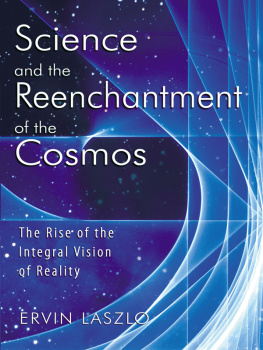
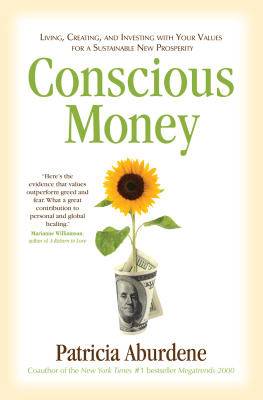
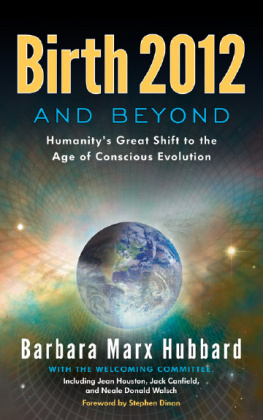
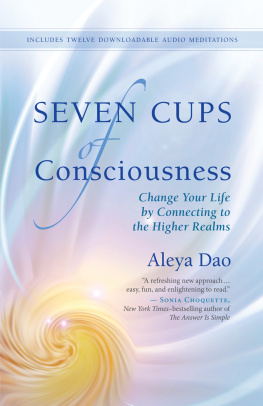

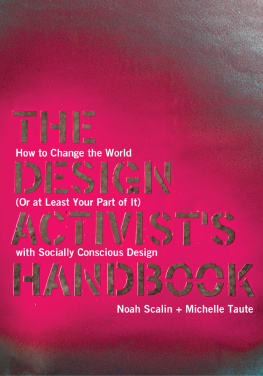
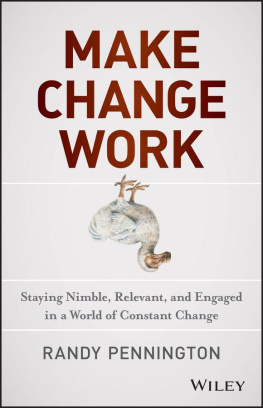
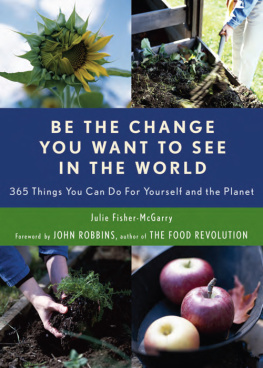




 The dispossessed of the earth are rising and wont be suppressed in their quest for prosperity.
The dispossessed of the earth are rising and wont be suppressed in their quest for prosperity.